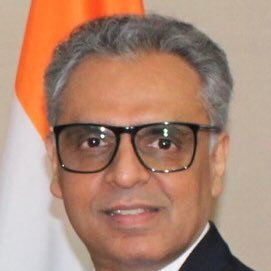By Arul Louis
United Nations– As a new round of negotiations between the US and the Taliban is to start in Qatar, India has cautioned against a hasty deal with the terror group that is dictated by a Washington timeline rather than the best interests of Afghanistan.
Speaking at the Security Council on Wednesday, India’s Permanent Representative Syed Akbaruddin also said that shutting down terrorist safe havens in Pakistan must be a precondition for a peace agreement to go forward.
While welcoming the international efforts for ending the Afghanistan civil war, he said: “We see that some may be driven by a sense of an urgency with timelines which are, perhaps, not intrinsic to the needs of the Afghan people.”
He also warned that terrorist organisations cannot be allowed to negotiate from a position strength that is guaranteed to them by the sanctuaries given to them by Pakistan.
Akbaruddin, however, diplomatically did not name the US or Pakistan, but his message to them was clear.
“As the way forward is chalked out, we cannot ignore that groups enjoying support and safe havens carry out violent and terrorist activities from across borders,” he said. “They cannot be allowed to negotiate from a place of advantage.”
“The sanctuaries and safe havens provided to terror networks have to be addressed for genuine and sustainable peace. The terrorist activities of the Taliban, Haqqani Network, Islamic State (IS), as well as Al Qaeda and its proscribed affiliates, including the Lashkar-e-Taiba and Jaish-e-Mohammed, need to end.”
Washington has been trying to forge a peace deal with the Taliban so that US President Donald Trump can keep his election promise of ending American involvement in Afghanistan and bringing the troops home as the campaign for next year’s election heats up.
The pace of negotiations have accelerated recently and a key round of negotiations between the Taliban leaders and Zalmay Khalilzad, the US Special Representative for Afghanistan Reconciliation, is scheduled to start this week in Doha.
The two sides appeared to dispute the interpretations of what they have agreed so far on US troop withdrawal. The Taliban negotiators’ spokesperson was reported to have tweeted on Tuesday that the US had agreed to pull out its troops.
But Khalilzad clarified in a tweet that the US sought “a comprehensive peace agreement, not a withdrawal agreement”.
Troop withdrawal is only one part of a comprehensive peace agreement, which would inlcude counter-terrorism assurances, intra-Afghan negotiations that lead to a political settlement, and a comprehensive and permanent ceasefire, he explained in another tweet.
Khalilzad visited India last month for consultations with Indian officials on the negotiations.
Speaking at the Security Council, Rodney Hunter, the political coordinator at the US Mission, said: “The US has made clear to the Taliban that we are prepared to reduce our forces; however, we have not agreed to numbers or a timeline with the Taliban.”
For any peace agreement to go into force, despite the US need for speed, the Afghanistan government has to directly negotiate with the Taliban. This was emphasised at the Security Council by Tadamichi Yamamoto, the UN Special Representative for Afghanistan.
“The common message to the Taliban is clear: come to the table and negotiate directly with the Afghan Government,” he said.
“All parties agree that finalising a US-Taliban understanding on terrorism and the foreign troop presence will open the door for intra-Afghan dialogue and negotiations.”(IANS)














